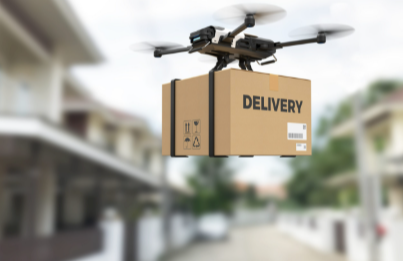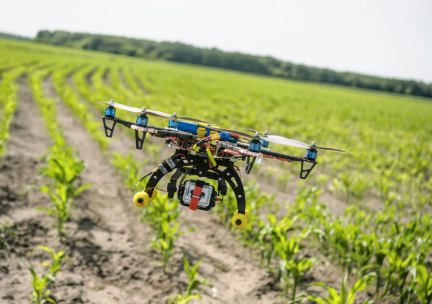Exploring the Future of Autonomous Drones in Delivery Services
The rise of autonomous drones in delivery services presents significant implications for the logistics sector. Their ability to enhance efficiency and lower carbon footprints aligns with contemporary sustainability goals. However, various regulatory and technical barriers remain. As companies navigate these challenges, the potential transformation of job roles within the industry adds another layer of complexity. What strategies will emerge to address these evolving workforce dynamics and ensure successful integration?
The Advantages of Autonomous Drone Delivery
As businesses increasingly seek efficient solutions for logistics, the advantages of autonomous drone delivery emerge as a transformative option.
These drones provide remarkable cost efficiency by reducing labor and transportation expenses. Additionally, they contribute to environmental benefits through lower carbon emissions compared to traditional delivery methods.
This innovative approach not only enhances operational effectiveness but also aligns with the growing demand for sustainable practices in logistics.
Overcoming Regulatory and Technical Challenges
How can the burgeoning field of autonomous drone delivery navigate the intricate landscape of regulatory and technical challenges?
Addressing regulatory hurdles requires collaboration with governmental bodies to establish clear guidelines.
Simultaneously, overcoming technical limitations involves advancing drone technology for improved safety and efficiency.
Impact on the Logistics Industry and Job Market
The integration of autonomous drones into delivery services is poised to significantly impact the logistics industry and the job market.
While efficiency gains may drive costs down, job displacement is a pressing concern as traditional roles evolve.
The workforce must adapt through reskilling and embracing new opportunities, ensuring that the shift toward automation fosters innovation rather than merely replacing existing jobs.
Read more: How Technology Is Revolutionizing the Agriculture Industry
The Future Landscape of Drone Delivery Services
While advancements in technology continue to propel the development of autonomous drones, the future landscape of drone delivery services appears increasingly promising.
Enhanced urban infrastructure will facilitate seamless integration, allowing drones to navigate efficiently.
As consumer behavior shifts towards a preference for rapid, convenient solutions, businesses must adapt by embracing these innovations, ultimately transforming last-mile logistics and redefining delivery expectations for the modern consumer.
Conclusion
In conclusion, the future of autonomous drones in delivery services promises efficiency, sustainability, and innovation. By harnessing technology, addressing regulatory challenges, and transforming the logistics industry, businesses can adapt to evolving consumer demands. As drones take flight, they not only redefine delivery but also reshape job roles, requiring a workforce that is skilled and agile. Ultimately, the rise of drone delivery services heralds a new era of logistics, one that is efficient, environmentally friendly, and economically dynamic.







